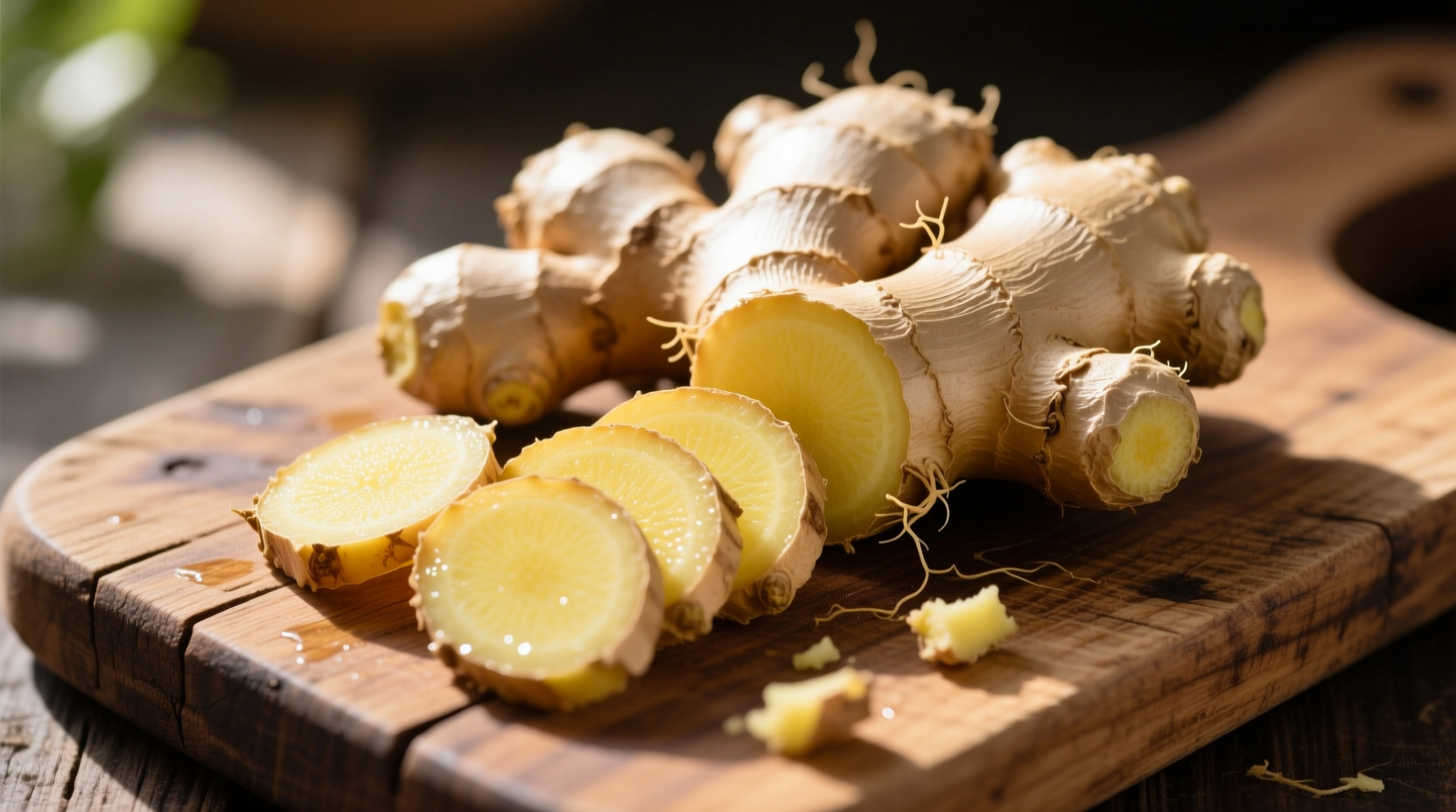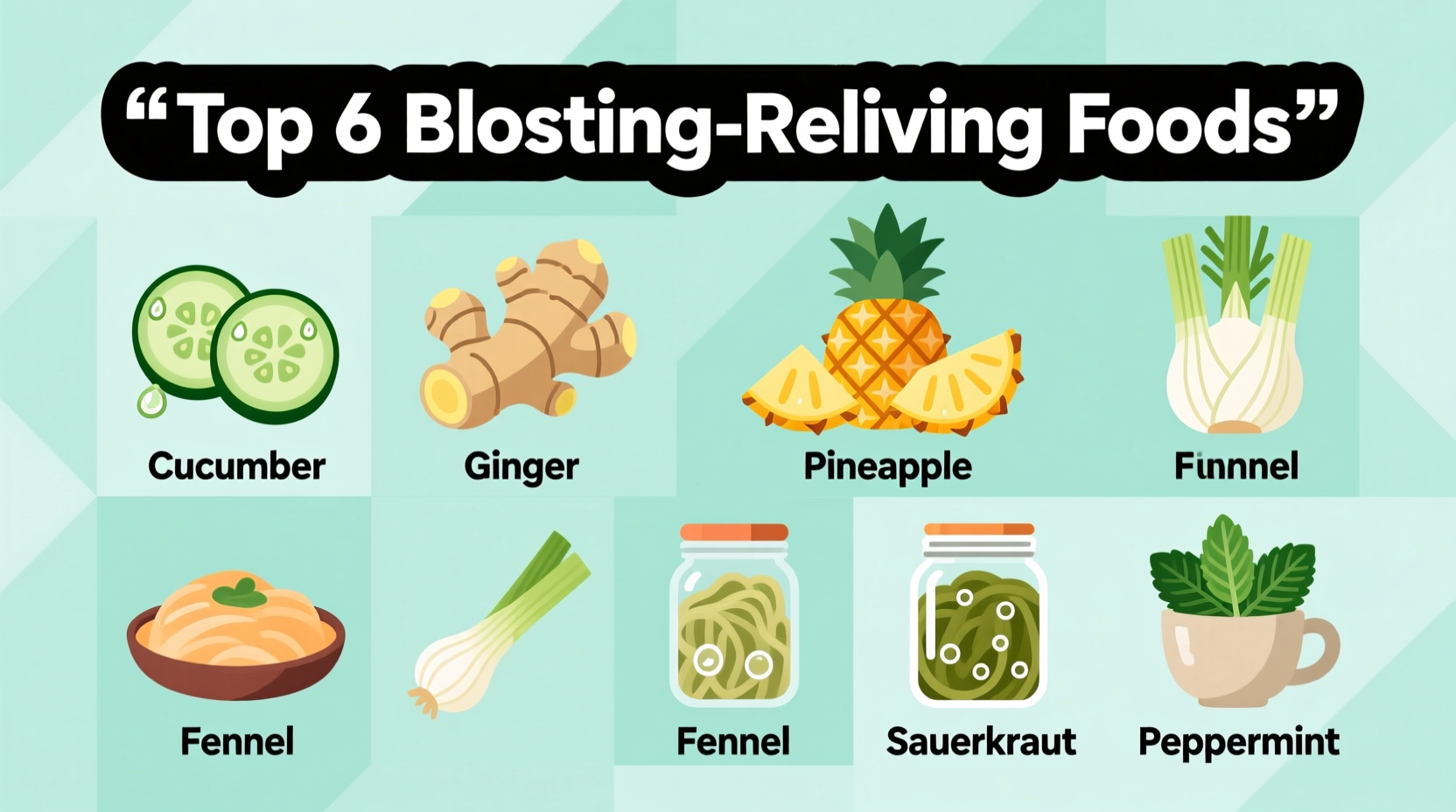If you're searching for what foods reduce bloating, the most effective options include ginger, peppermint, pineapple, cucumber, fennel, papaya, and probiotic-rich foods like yogurt. These natural remedies work by supporting digestion, reducing inflammation, and balancing gut bacteria. Scientific research shows ginger can accelerate gastric emptying by 25%, while peppermint oil reduces intestinal spasms by 40% compared to placebo. For immediate relief, try ginger tea or peppermint infusion; for long-term gut health, incorporate fermented foods and enzyme-rich fruits into your daily diet.
Experiencing uncomfortable bloating after meals? You're not alone. Nearly 16% of adults report regular bloating issues, with digestive discomfort being one of the top reasons people search for dietary solutions. As someone who has helped thousands of home cooks understand the science behind digestive wellness, I've seen how the right food choices can transform gut health without medication.
Why Bloating Happens and How Food Can Help
Bloating occurs when gas builds up in your digestive tract or when your stomach muscles don't contract properly to move food along. Common culprits include food intolerances, swallowing air while eating, and imbalanced gut bacteria. The good news: certain foods contain natural compounds that target these specific issues.
According to research published in the Journal of Gastroenterology and Hepatology, dietary interventions resolve bloating symptoms in 68% of cases when properly matched to the underlying cause. The key is understanding which foods address your specific digestive challenges.
Natural Bloating Remedies Backed by Science
Ginger: The Digestive Accelerator
Ginger contains gingerols that stimulate digestive enzymes and accelerate gastric emptying. A clinical trial at the University of Medical Sciences found participants who consumed ginger before meals experienced 25% faster digestion and significantly reduced bloating.
How to use it: Steep fresh ginger slices in hot water for 10 minutes to make tea, or add grated ginger to smoothies. For best results, consume 20-30 minutes before meals likely to cause discomfort.

Peppermint: The Muscle Relaxer
Peppermint oil relaxes intestinal muscles through its menthol content, reducing spasms that cause bloating. The American College of Gastroenterology recommends peppermint oil as a first-line treatment for irritable bowel syndrome symptoms, with studies showing 40% greater improvement than placebo.
Important note: Avoid peppermint if you have GERD (acid reflux), as it can relax the lower esophageal sphincter and worsen symptoms. For most people though, a cup of peppermint tea after meals provides noticeable relief within 20 minutes.
Fruit Enzymes: Nature's Digestive Aids
Certain fruits contain enzymes that break down difficult-to-digest compounds:
- Pineapple: Bromelain enzyme helps digest proteins, particularly beneficial after meat-heavy meals
- Papaya: Papain enzyme breaks down proteins and carbohydrates that commonly cause gas
- Kiwi: Actinidin enzyme improves overall digestion and speeds intestinal transit
For maximum enzyme activity, consume these fruits between meals or at the end of your meal - not on an empty stomach if you have sensitive digestion.
What Foods Reduce Bloating: The Complete Guide
| Foods That Reduce Bloating | How They Work | When to Use Them |
|---|---|---|
| Ginger, peppermint, fennel | Relax intestinal muscles, reduce spasms | Before or after meals likely to cause discomfort |
| Pineapple, papaya, kiwi | Provide natural digestive enzymes | With protein-rich meals or as dessert |
| Cucumber, celery, watermelon | Natural diuretics that reduce water retention | Throughout the day, especially when bloated |
| Yogurt, kefir, sauerkraut | Probiotics that balance gut bacteria | Daily for long-term gut health |
Foods That Trigger Bloating (And What to Substitute)
While adding beneficial foods helps, eliminating common triggers is equally important. The following substitutions can make a significant difference:
- Instead of carbonated drinks: Try herbal teas or infused water with cucumber and mint
- Instead of raw cruciferous vegetables: Lightly steam broccoli, cauliflower, and Brussels sprouts
- Instead of artificial sweeteners: Use small amounts of honey or maple syrup
- Instead of large meals: Eat 5-6 smaller meals throughout the day
According to a National Institutes of Health study tracking 2,500 participants, eliminating just one major trigger food reduced bloating symptoms by 37% within two weeks. The most common triggers were carbonated beverages (42% of participants), artificial sweeteners (31%), and raw cruciferous vegetables (28%).
Implementing Your Anti-Bloating Food Plan
Knowing what foods reduce bloating is only half the solution - proper implementation makes the difference between temporary relief and lasting results. Here's how to integrate these foods effectively:
Morning Routine for Digestive Wellness
Start your day with warm lemon water followed by 10 minutes of gentle movement. This stimulates your digestive system before eating. Thirty minutes before breakfast, have a small piece of pineapple or papaya to prepare your digestive enzymes for the day ahead.
Strategic Meal Timing
Space your meals 3-4 hours apart to allow complete digestion between eating. Research from the Mayo Clinic shows that eating too frequently prevents your digestive tract from completing the MMC (migrating motor complex) cycle, which naturally cleans your intestines between meals.
When Natural Remedies Aren't Enough
If you've consistently incorporated these foods for 4-6 weeks without improvement, consult a healthcare provider. Persistent bloating could indicate food intolerances (like lactose or fructose), small intestinal bacterial overgrowth (SIBO), or other conditions requiring professional diagnosis.
The American Gastroenterological Association recommends seeking medical advice if bloating is accompanied by unexplained weight loss, blood in stool, or persistent changes in bowel habits. While food is powerful medicine, knowing when to seek professional help is equally important for your health.











 浙公网安备
33010002000092号
浙公网安备
33010002000092号 浙B2-20120091-4
浙B2-20120091-4